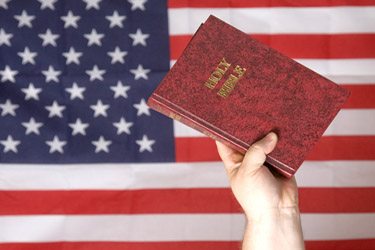Supreme Court Temporarily Blocks Contraception Mandate for Some Catholic Groups
In a narrow New Year's Eve ruling, Justice Sonia Sotomayor blocked the contraception mandate from applying to a group of Catholic employers, while the Supreme Court considers taking up whether the accommodation for religiously affiliated employers goes far enough.

On Tuesday, just hours before the birth control benefit in the Affordable Care Act was set to take effect, Supreme Court Justice Sonia Sotomayor granted an injunction and temporarily blocked the requirement from applying to a handful of Catholic nonprofit businesses. The ruling applies only to the parties in the case and does not affect the contraception benefit as a whole, but it does raise questions as to whether the Roberts Court is interested in looking at the contraception mandate, and all its exemptions, as a whole later this spring.
The injunction was issued in the case of Little Sisters of the Poor, a Catholic religious order that operates assisted living facilities. The suit, first filed in September, seeks class-action status on behalf of hundreds of Catholic nonprofits, and challenges the accommodation to the law’s requirement that employers provide insurance coverage for contraception. Under the Affordable Care Act, as of January 1 all employer-provided insurance plans are required to provide insurance coverage for contraception, with the exception of houses of worship and other organizations that are primarily religious in purpose. Another exemption exists for religiously affiliated nonprofits like hospitals and universities. Under the law, those organizations don’t have to offer contraception coverage, but they must complete a form so that their employees can access contraception coverage directly. According to the Little Sisters of the Poor and the other nonprofits that have sued to block the accommodation, the law’s requirement that some religiously affiliated employers sign a form by which they can opt out of the benefit under an accommodation the Department of Health and Human Services developed last year violates their religious liberties.
The order temporarily blocking the requirement gives the Obama administration until Friday to file its response. Once the administration has responded, Justice Sotomayor will reconsider the injunction herself or refer the matter to the entire Supreme Court for consideration. (Sotomayor is overseeing the case because she is the justice assigned to the federal circuit where the lawsuit was first filed.)
“The Affordable Care Act ensures that women can access birth control without co-pays no matter where they work, just like any other kind of preventive care,” said Cecile Richards, president of the Planned Parenthood Federation of America, in a statement. “Religiously affiliated organizations, including the two that filed this emergency appeal at the Supreme Court, are already able to get an exemption so that they aren’t paying for or administrating coverage of birth control if it violates their religious mission. This exemption ensures that women can get access to affordable birth control no matter where their work, while also addressing the concerns of religiously affiliated organizations.”
The New Year’s Eve ruling came after a flurry of rulings from federal appellate courts on the accommodation, including a unanimous ruling from the Seventh Circuit denying an injunction in Notre Dame’s challenge to the accommodation, and a ruling from the Sixth Circuit in which a divided panel upheld the grant of an injunction in a case brought by the Catholic Diocese of Nashville and a handful of other Catholic plaintiffs. The D.C. Circuit Court of Appeals also granted an injunction in the Priests for Life case. In all, 45 religiously affiliated nonprofits have filed lawsuits in federal court arguing that filling out the form to allow their employees to access birth control is a substantial burden on their religious liberties.
Along with the Little Sisters of the Poor case, the Supreme Court received at least three other emergency filings Tuesday from Catholic groups seeking to avoid complying with the law. No orders in those requests have yet been issued.
